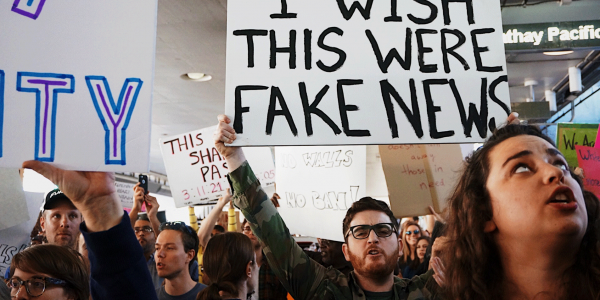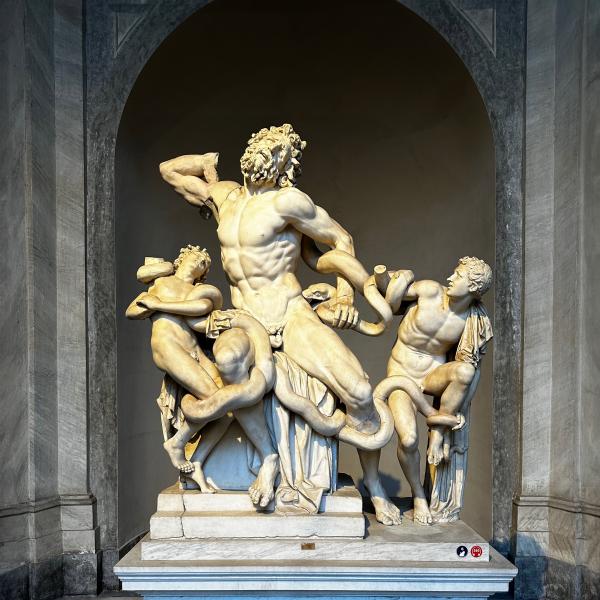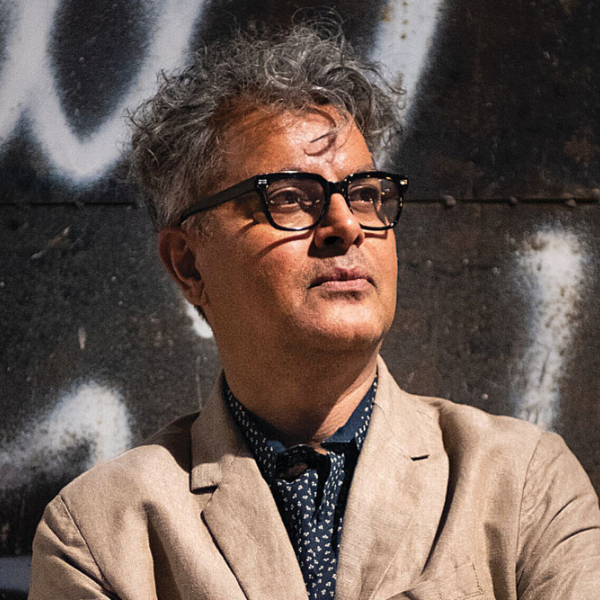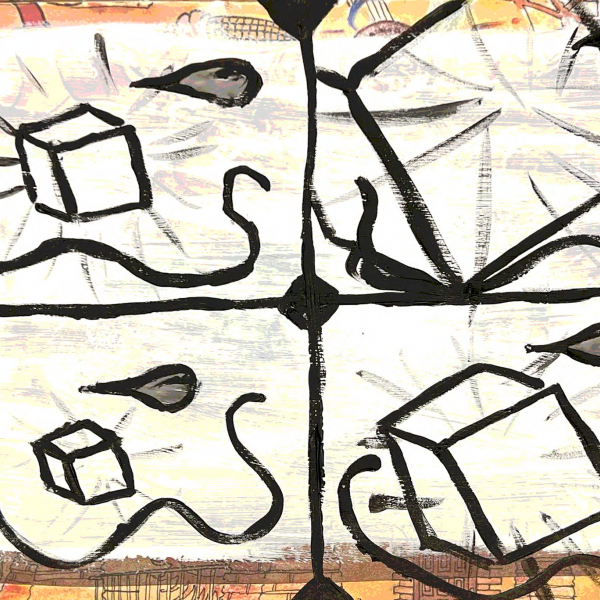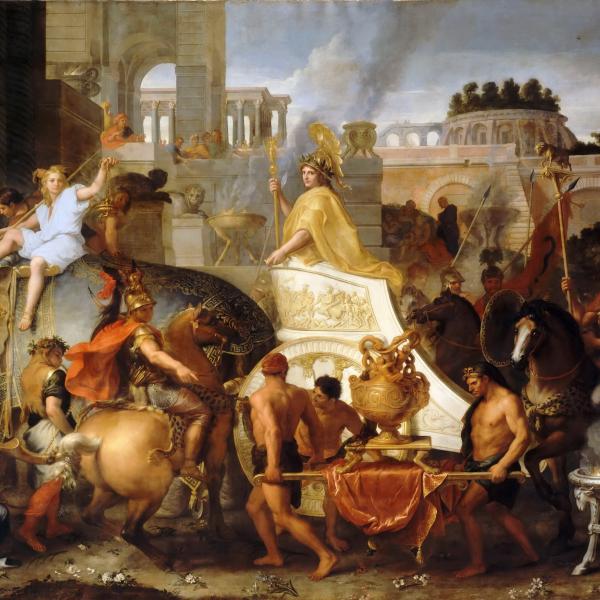The proliferation of junk-knowledge about Syria — in the form of memes, websites, videos and biased news reporting — makes it an apt site to question the physical and metaphorical litter of contemporary politics. Anne-Marie McManus and Nancy Reynolds write about the toxic consequences of the visible and invisible “stuff” that flows and distorts landscapes.
The civil war in Syria entered its seventh year in March. Civilian protests, coinciding with other uprisings during “the Arab Spring” in 2011, intensified after the documentation of government torture of teenage children who wrote antiregime graffiti in the town of Daraa. The protests spread into a multisided armed conflict with the repressive al-Assad regime at its center. News of the conflict has punctuated global awareness unevenly. Vast numbers of cell phone images have documented human rights abuses on the ground: images of the damaged bodies of Syrian children have produced international outcry and solicited widespread concern — even impassioned policy tweets from the U.S. president. Yet, these sensationalizing flashes merely punctuate long stretches of absence and lack of understanding of the conflict in the global media.
On Thursday, April 19, political scientist Lisa Wedeen, the Mary R. Morton Professor of Political Science and the College and the co-director of the Chicago Center for Contemporary Theory at the University of Chicago, will present a public lecture on the political and epistemic consequences of the flood of news from Syria. Wedeen’s focus is on the speculative practices — the forms of uncertainty — that are produced by the insecurities of the current conflict and more broadly by new regimes of representation and “truth” that have emerged in the past decades. In her work, she uses the case of chemical weapons attacks in Syria to make visible the challenges of excavating political truth from the flood of documentation that is now circulating through an array of distribution outlets.
Lisa Wedeen, the Mary R. Morton Professor of Political Science, University of Chicago
Thursday, April 19, 4 pm
Wilson Hall, Room 214
FREE & OPEN TO THE PUBLIC
Flooding and its toxic consequences have been at the center of our inquiry in the Mellon Sawyer Seminar “Grounding the Ecocritical: Materializing Wastelands and Living on in the Middle East” this spring on campus. From a wide array of disciplines and case studies, our speakers have traced the visible and invisible “stuff” that flows and distorts landscapes: crude oil and chemical dispersants from an oil spill in the Gulf of Mexico; the buildup of depleted uranium as American military waste in Iraq; the uncontrolled release of urban sewage into New York City’s creeks; heavy metals and toxins left behind in military target practice; the unequal distribution of radioactive and chemical waste in St. Louis from wartime military production.
The dangers of flooding — and strategies to survive them — have been the stuff of myth for millennia. In a February lecture on the narratives of Noah and his family, Jeffrey Jerome Cohen, a specialist in medieval English literature, reminded us of the dangers of “ark thinking” (who, and at what cost, decides what and whom are preserved in a flood?) and invited us to consider new forms of refuge to be found in the flooded wastelands left behind at the ark’s departure. Disturbed landscapes truncate and foreclose possibility for some species even as they open up new relationships and forms of growth. Floods dissolve and disperse certain toxins, flush others from immediate to more distant surroundings, displace people, nonhuman creatures, law and even narrative. But for those already disenfranchised, the catastrophes associated with floods may destroy stratified landscapes that have already produced violence. “Waste on top of waste,” as Walter Benjamin described it, has uneven effects.
How and when do wasteland spaces become legible, beyond surface demarcations as empty or barren? Professor Wedeen has researched the internal workings of power in several “weak states” that epitomize political wastelands in the Middle East — the nature of authoritarianism and its ambiguities in late 20th-century Syria; the performative politics of participation in prewar Yemen. Both these sites are today torn apart by war: one, Syria, unevenly visible in the global media, and the other, Yemen, absent. Wedeen’s work relies on close observation of political practices but also the overlooked stuff that litters the lived and imaginative worlds of wasted political spaces: jokes, dream narratives, rumors, sentiments, soap operas and sketch comedy, film and more. In so doing, she draws the eye to the many gradations of sociopolitical life in spaces depicted as barren and homogenized: overwhelmed by seemingly never-ending waves of authoritarianism and, in popular U.S. depictions, religious strife.
The gradations Wedeen calls into view are of the present. Her current work attends to the affective and political divisions in contemporary Syrian society, torn not only by violence but by fractured possibilities of knowing and judging what is true. These nuanced divisions are also generational, the legacy of competing visions of “the good life” — whether the glittering neoliberalism of the prewar Assads or the socialist vision of 1980s and 1990s Syria under Hafez al-Assad. At the heart of this work is a concern for what knowing and judging make possible — the formation of communities that, while not uniform, can agree on certain shared affective and political horizons. Amidst the flood of fake news in Syria, as elsewhere, the formation of future communities is under threat. The buildup of proliferating junk-knowledge online, in the media, and in the imagination shifts Syria today from a wasted, apolitical space to an exemplary site to grapple with the detritus of contemporary politics more broadly.
A goal of the seminar has been to reorganize common patterns of thought and scholarly production on the Middle East by looking through the lens of wasted stuff and wasteland spaces. This lens can expose accretions and sedimentations invisible in official histories or popular imaginaries, ranging from the material, such as networks for waste transportation and military waste, to the imaginative. Syrian writer Dara Abdullah connects the diaspora in Germany via discarded everyday objects to war-torn Syria in “Memory of Garbage,” for example: “Here in Germany, everything gets recycled; the spoon you eat with might have been a gun in the hand of a fighter in Syria, a hoop in a teenager's ear, or the hoof of a horse...” Overlooked and seemingly arbitrary, this stuff tends to be defined by what it is not: productive, useful, whole. Yet, by honing in on this negation, we may reframe the geographies of power that connect the Middle East to the rest of the world. In the words of anthropologist Gastón Gordillo, a scholar of rubble, we must “rethink the very nature of space by way of the destruction that creates it”; by examining “space negatively: by way of the places that were negated to create the geographies of the present.”

